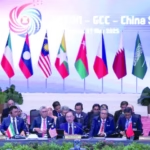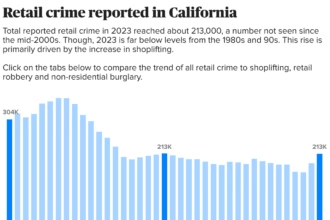Pakistan resets rules faster than investment cycles can adjust, eroding confidence
Amounts to $1.45b in 11MFY16 compared to net FDI inflow of $1.08b. PHOTO: REUTERS
ISLAMABAD:
Pakistan’s debate over foreign direct investment (FDI), reignited by multinational exits and sporadic inflows, has revived an old question: why does one of the world’s largest markets still struggle to inspire investor trust? The truth is; Pakistan’s problem is not potential; it is predictability.
Pakistan is the world’s fifth-largest nation, home to over 240 million people – a vast consumer base, a growing urban middle class, and a strategic location connecting South, Central, and West Asia. By geography and demographics alone, it should be a magnet for investment.
But potential does not attract capital, predictability does. Where rules change midstream, taxation becomes arbitrary, and decisions rest on discretion rather than process, even the biggest markets lose their pull.
How global investors think
Investment capital moves on logic, not sentiment. Multinationals plan in decades, not quarters. They seek reliability of rules, enforceable contracts, and macroeconomic stability.
Smaller economies such as Vietnam, Malaysia, and Bangladesh have become preferred destinations not because of scale, but because of policy consistency. In 2023, Vietnam attracted $36.6 billion in FDI commitments and realised $23.2 billion, driven by manufacturing and logistics reforms that outlast political cycles. Pakistan, by contrast, often resets its rules faster than investment cycles can adjust, eroding confidence before capital even arrives.
Consistency is new incentive
Pakistan has one of the most liberal investment regimes in the region. Its Special Economic Zones Act (2012) and related policies were enacted by parliament to offer long-term confidence to investors. Yet these frameworks could not survive the country’s political economy of short-term borrowing and shifting priorities.
Many of Pakistan’s peers also offer free zones and preferential regimes, but what makes them successful is not the incentive itself, it is the consistency of its application. In Saudi Arabia, the UAE, and Bangladesh, policies survive governments and budgets; investors trust systems that remain stable beyond politics. China’s own industrial success was anchored in stable, concession-based economic zones, where rules were clear, and commitments were honored.
When policies are announced, revised, and reversed within months, even generous concessions lose meaning. The real competition today is not in offering more, it is in offering reliably.
Exits, entrances, and real signal
The exit of multinational firms such as Procter & Gamble must be seen in context. Globally, P&G is consolidating production in major, predictable markets – the United States, Europe, Greater China, and India – while exiting smaller or more volatile ones.
Yet its decision also mirrors Pakistan’s local challenge: a high-potential market that remains administratively unpredictable. Multinationals stay where policy stability and operational clarity outweigh uncertainty – not where incentives temporarily compensate for risk.
Pakistan’s case exposes this tension clearly. It is a large market by population, but not yet by purchasing power. Low per capita income and shrinking real consumption have constrained the very consumer base that once attracted FMCG giants.
The recent exit of pharmaceutical companies is an even more serious signal – one that strikes at the heart of public health. Investors are not merely withdrawing capital; they are signalling distrust in regulatory and pricing predictability.
From denial to diagnosis
Pakistan’s investment conversation needs a behavioural shift. Policymakers often cite company registrations and MoU signings as proof of investor confidence – even when real inflows, production, and employment remain stagnant.
Registration without deployment is statistical theatre. The true measure of success is whether investment stays, expands, and creates jobs. Moving from denial to diagnosis means acknowledging weaknesses openly and fixing them systemically. Institutional learning – not narrative management – restores credibility.
Institutions as cornerstone of confidence
The credibility of any investment destination rests not on slogans or glossy brochures but on the strength of its institutions. Predictable courts, efficient dispute resolution, and transparent regulations are the silent guarantees behind sustained inflows.
Investors can tolerate risk but not arbitrariness. Without rules-based governance, even the best policies remain paper promises. Strengthening regulators, commercial courts, and enforcement mechanisms is not an academic exercise; it is an economic necessity. Institutions must be market-responsive, reducing rather than adding to the cost of doing business.
Retain, attract, and expand
With fiscal space constrained by IMF-led reforms, Pakistan no longer has the luxury of “buying” investment through concessions. This may be a blessing in disguise, forcing a shift towards institutional discipline that should be independent of external conditions.
Today’s investors measure opportunity through retention, attraction, and expansion. Retaining existing investors is as vital as bringing in new ones, because nothing signals confidence more powerfully than those who choose to stay and grow.
Jobs, youth, and real economy
Two-thirds of Pakistan’s population is under 30 – a massive human dividend waiting to be engaged. But if FDI remains confined to low-labour, import-dependent sectors, and brand outlets, the employment dividend will vanish.
Quality investment aligned with industrial and skills’ policies can generate jobs, technology transfer, and upward mobility. This is what transformed Vietnam, Malaysia, and South Korea – they turned industrial policy into human capital strategy, translating productivity into prosperity.
Resource-based investment and global shift
Africa’s recent experience is instructive. Countries like Egypt ($9.8 billion in 2023), Mozambique ($3.55 billion), and Zambia ($1.24 billion) have drawn billions in resource-linked FDI – from green hydrogen to critical minerals and energy infrastructure. These inflows are not just about resources; they reflect governance reforms and regulatory predictability.
Pakistan, too, sits on significant mineral and renewable potential, but its challenge is not geology; it is governance. Without credible frameworks, even resource-rich economies remain undercapitalised. Rebuilding investor confidence is a deliberate choice, not a coincidence.
Confidence agenda for decade ahead
To move from episodic inflows to sustained investment, Pakistan must deliver six assurances: 1-Policy predictability – frameworks that survive political cycles. 2-Ease of repatriation – transparent and timely profit transfers. 3-Transparent taxation – simplified, digital compliance and fewer discretionary powers. 4-Export orientation – incentives tied to productivity, not protectionism. 5-Swift dispute resolution – impartial enforcement of contracts. 6-Institutional evolution – modernisation of capacity, not bureaucracy. Each is achievable within existing laws; what is needed is coordination, capacity, and political will.
The writer is an investment, trade, & public policy consultant & a corporate lawyer









